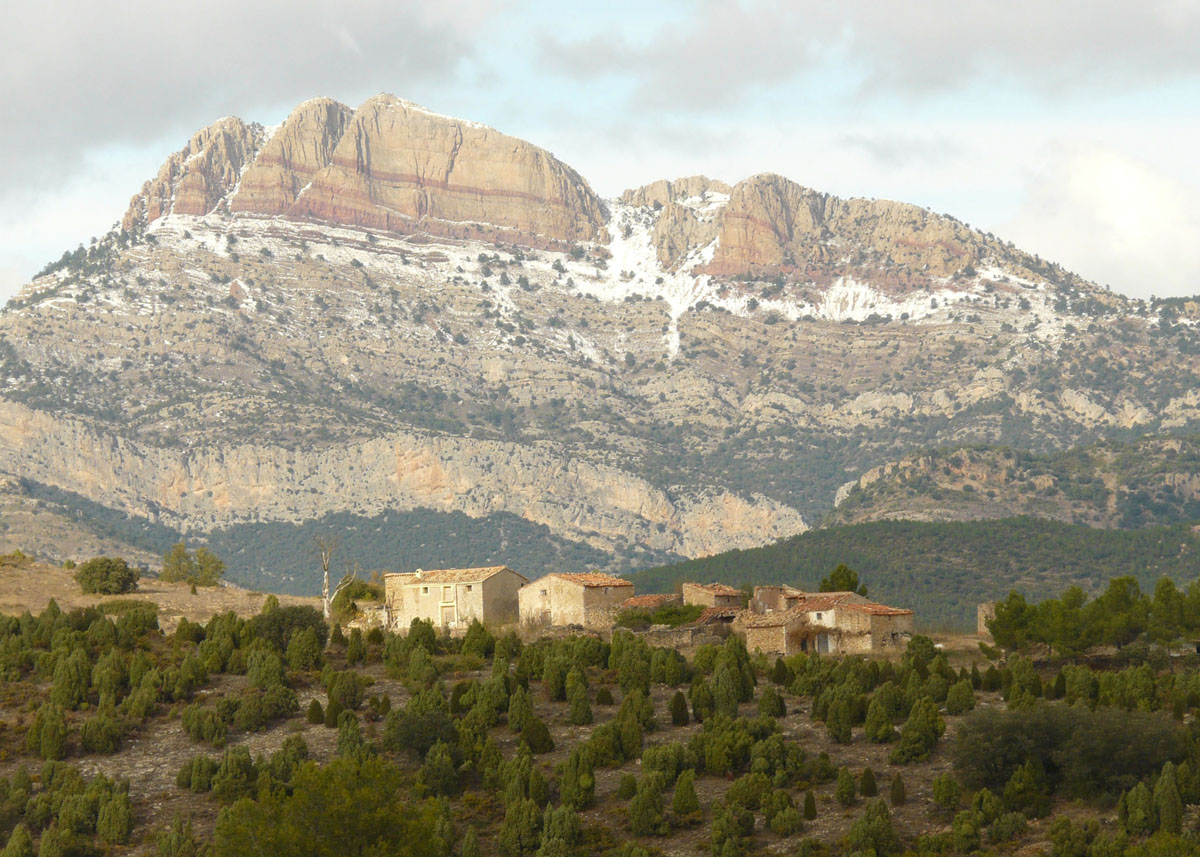The philologist Rosanna Cantavella defends in a new hypothesis that the place name Penyagolosa derives from Penya Angolosa
- Scientific Culture and Innovation Unit
- December 1st, 2022

The professor of Catalan Philology at the University of Valencia Rosanna Cantavella has proposed a new hypothesis about the historical origin and evolution of the place name Penyagolosa. Using semantic and phonetic criteria, the researcher defends that it is an oronym resulting from the agglutination of a noun (pinna) plus the adjective angulosa. This study was presented at the Jaume I University in Castellón in the framework of the LXVII Annual Conference of the Anglo-Catalan Society.
Penyagolosa is the most symbolic mountain in the Valencian collective imagination and the highest of all the territories of the Valencian linguistic domain, with its 1,811 meters (Valencian Cartographic Institute). Being exempt from another nearby high-altitude mountain, its pointed or prowed shape with its enormous precipice to the south and its visibility, has made it an appreciated, well-known and cited mountain since ancient times. What the place name can mean has been the subject of philological debate over time.
According to Cantavella’s study, the first place name that could have existed to refer to this emblematic mountain straddling the regions of Alto Mijares and l’Alcalatén could have been Pinna Angŭlōsa. Later, she indicates that the term would derive in Penya Angolosa and would finally become Penyagolosa, through the phonetic changes that would imply the abandonment of the nasal vibration of the [n] and the transformation of the [u] into a closed [o], going from angŭlōsa to golosa.
When asked why angolosa and not angulosa, since angle is the majority form that appears in the geographical records of Catalan and not àngol, the author argues that the latter does not necessarily have to be considered a rarity. Since, precisely in Alcanar, an area linguistically close to the area of Penyagolosa, a toponymic testimony of àngol currently survives. On the other hand, Cantavella is also based on the analysis of texts from between the twelfth and thirteenth centuries to defend this idea, among which the testimonies adduced by the philologist and sociolinguist Vicent Pitarch stand out.
Semantically speaking, the philologist defends the possibility that an abstract term such as anguloso could originally be applied to a mountain, as since the early days of Catalan there are testimonies where the frequent use of this term for delimiting land is observed, a fact that demonstrates through examples of texts from the eleventh to the fourteenth century. In this sense, the document provides a series of current images where the angular essence of Penyagolosa is shown, seen from different perspectives of all cardinal points.
Before defending this new hypothesis about the origin of the place name Penyagolosa, the author from Vila-real also devotes a section to denying, from the point of view of phonetic evolution, old beliefs about the origin of this term. Thus, she refutes the hypothesis of the Catalan philologist Joan Coromines, who in his work Onomasticon Cataloniae defends that Penyagolosa could come from aquilosa or aqualosa. Regarding the first one, Rosanna Cantavella defends that the vowel change from going from an [i] to a closed [o] is highly improbable, and of the second that the phonetic evolution from aqua to ago would be very unusual in the regions where the Penyagolosa mountain range is located.
Article: Rosanna Cantavella. «Nova hipòtesi sobre l’origen del topònim Penyagolosa». The LXVII Anglo-Catalan Society Conference, Universitat Jaume I, 4th-6th November (2022). DOI https://doi.org/10.17613/2t2q-eh61
Annex photo caption:
- Penyagolosa, enlarged view from the municipality of Llucena, in the region of l’Alcalatén.



















